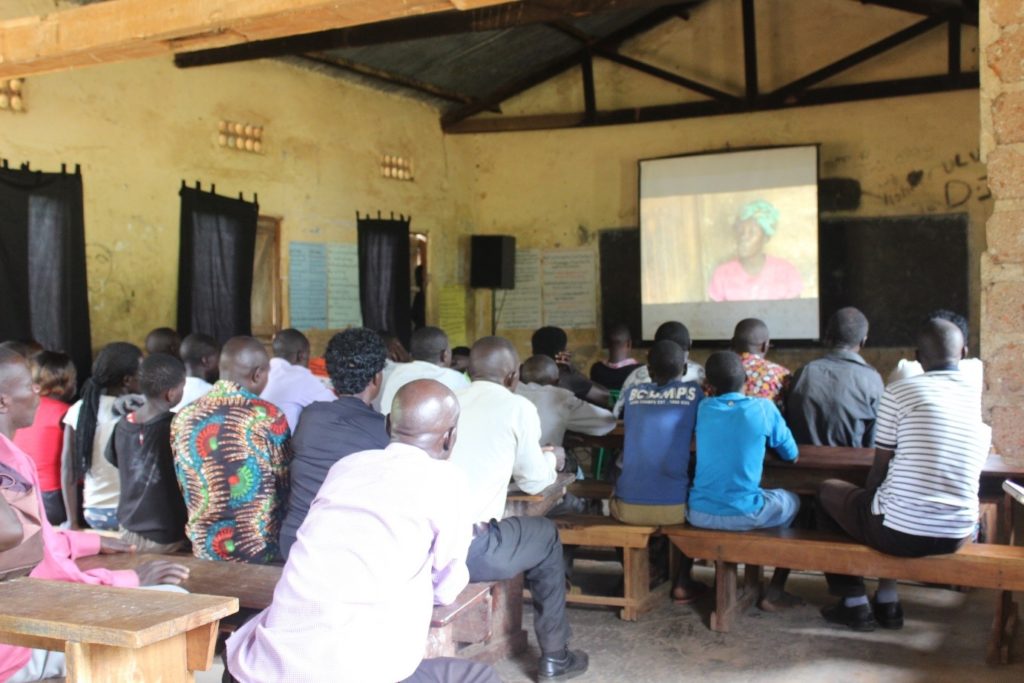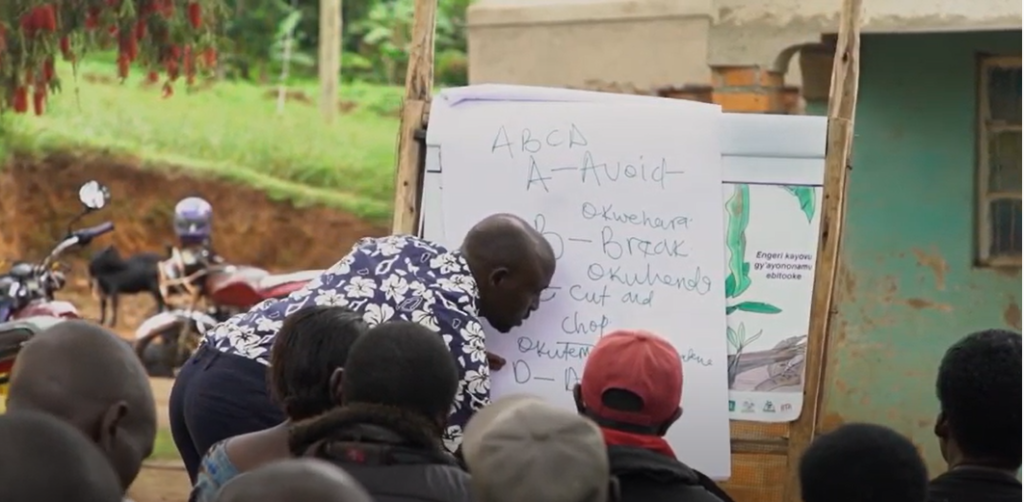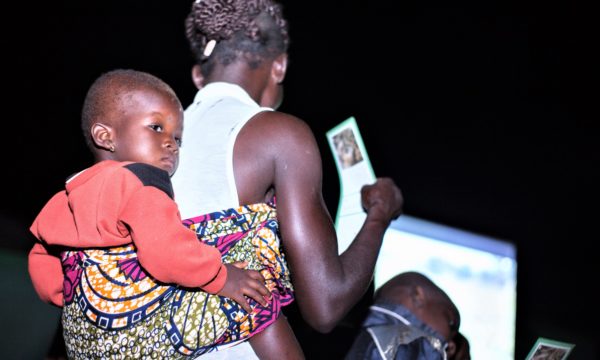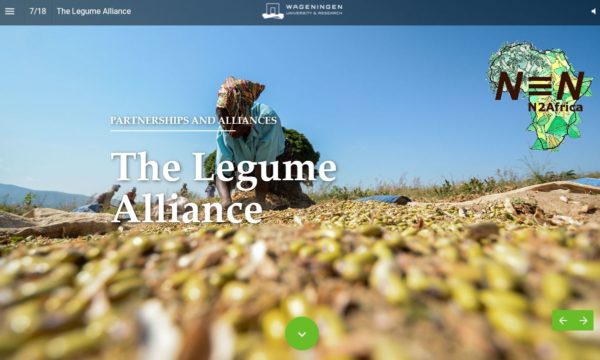
Art, music, dance, dramas, humour, storytelling and other forms of entertainment can serve as effective tools for helping to share information on agricultural best practice with smallholder farmers.
For example, what could be more appealing than a video drama on better banana management? CABI has worked with farmers to develop a video drama on the subject with five episodes translated into two languages. Created for small scale banana farmers in Uganda with contributions from farmers, the dramas are also performed by farmers themselves to increase their local appeal, encourage more efficient farming practices and ultimately increase productivity for banana growers. The dramas also include subtle life lessons in each episode theme which can be appreciated and adopted by both farmers and non-farmers alike.
Uganda is one of the top ten banana producing countries in the world with more than 75 percent of all farmers growing the country’s staple food. However, a combination of complex pests and disease, nutrient deficiencies and drought stress are impacting productivity and can significantly affect food and income security if not addressed.
‘Banana and I’ which is currently available in native Ugandan languages Runyankole, Luganda, as well as in English has been screened 15 times across Uganda reaching a total of 2266 men, women, teenagers and children in banana farming communities in the project subcounties: Birere in Isingiro district, Rwimi in Bunyangabo district and Nakaseke subcounty in Nakaseke district.
The video dramas are produced as part of the Bill & Melinda Gates Foundation funded ‘Improving scalable banana agronomy for small scale farmers in highland banana cropping systems in East Africa’ popularly referred to as the ‘Banana Agronomy project’. CABI is one of the partners and leads on development communications. The project aims to reach 25,000 households in Uganda and Tanzania working with private and public partners to help farmers bridge the productivity yield gap from the current annual average of 10ton/ha per year to 25ton/ha per year by improving banana management practices for small-scale banana farmers.
Making the video dramas
The banana agronomy project team in Uganda led by National Agricultural Research Organisation (NARO) in partnership with Bioversity International, CABI and the Institute of Tropical Agriculture (IITA) held several sessions with project partners, extension workers and relevant scaling agents to determine appropriate messages and channels that best convey banana technologies to small scale banana farmers based on likelihood of creating high impact. The team selected extension guides, story charts and the video dramas as the most appropriate learning channels.
Drawing on elements of traditional storytelling, the episodes highlight perceptions and attitudes of farmers in the local context; demystifying myths that prevent farmers from embracing better banana management practices. The dramas encourage farmers to be more receptive when engaging with new knowledge and practices by highlighting their benefits which include higher yields, increased quality of produce and economic benefits for the household. In addition, the dramas creatively encourage young people to take up banana farming.
The video dramas are intended to enhance farmer learning and interaction, while still entertaining the audience. The scaling agents also used the video drama screening evenings to answer farmer questions and train farmers further using other communication materials.
This exciting production, rich with elements of East African culture, received positive responses from attendees at the screenings and demonstrates what can be achieved using innovative development communications tools in agriculture.

‘Banana and I’ – Impact
Following the screenings, farmers were interviewed and reported to have acquired knowledge and skills in banana management including on the use of inorganic fertilizers and on managing pests and diseases such as banana bacterial wilt.
Farmers have also reported that the drama was reflective of their context and is an informative tool for receiving knowledge of banana farming. A female farmer from Kaberebere drama screening site said, “Thank you for reminding us. I may not be able to write but my eyes have seen and my memory has recorded.”
The cumulative knowledge from trainings and various resource materials has led to improved banana plantations with good crop vigour and banana bunch sizes. In Rwimi, productivity has increased from 11.2ton/ha/yr to 31.8ton/ha/yr, in Birere from 11.0ton/ha/yr to 19.5t/ha/yr and in Nakaseke from 5.6ton/ha/yr to 11.8ton/ha/yr.
Although the project end date is approaching, materials and training conducted in the various project districts will be used by extension staff from both private organisations and the districts’ local governments to reach out to over 15,000 farmers within the project sites and more farmers beyond the project sites.
Additional Information
Food and Nutrition Security at CABI
Development Communication and Extension at CABI
CABI joins partnership to help boost banana productivity in Uganda and Tanzania
Project: Improving banana agronomy practices for small scale farmers in East Africa
‘Tuning in’ to help banana farmers reap the ‘fruits’ of more profitable harvests
Related News & Blogs
Social norms: why women farmers might not be getting ahead despite development support
Project team members visiting farming community in Muzaffargarh, Pakistan to know the knowledge and skills of vegetable farmers (Credit: CABI). On International Women’s Day, Bethel Terefe, Gender Coordinator, CABI takes a look at gender-related social…
8 March 2021




